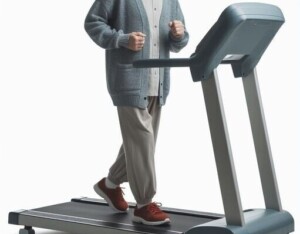A study suggests that even modest physical activity — like adding a few thousand steps to your day — could make a real difference in how quickly Alzheimer’s disease develops.
Researchers from Mass General Brigham found that older adults who moved more had slower cognitive decline, especially those who already had high levels of amyloid-beta, the brain protein strongly linked to Alzheimer’s.
The study, published in Nature Medicine (2025), reveals how something as simple as daily walking might help protect your brain for years.
How It Breaks Down
Those who walked between 3,000 and 5,000 steps a day delayed cognitive decline by about three years. Those who walked 5,000 to 7,500 steps daily gained roughly seven years of delay.
Meanwhile, participants who were mostly inactive saw a faster buildup of tau proteins — another key marker of Alzheimer’s — and sharper drops in thinking and daily functioning.
These findings help explain why some older adults who seem on the path to Alzheimer’s don’t decline as fast as do others, says the paper.
Getting a head start on increasing physical activity can make a big difference down the road.
How the Study Was Done
The long-term research followed 296 adults, 50 to 90, who began the Harvard Aging Brain Study with no signs of cognitive impairment.
They wore pedometers on their waistbands to track movement and completed brain scans to measure amyloid-beta plaques and tau tangles.
Over the years — some participants were followed for up to 14 years — they took annual cognitive tests, and a subset had additional brain imaging to check for changes in tau.
The Results
Subjects with higher amyloid levels who took more steps had slower cognitive decline and less tau buildup over time. The data suggests that the main reason activity helped was because it seemed to slow tau accumulation.
Interestingly, for people with low amyloid levels, there wasn’t much evidence of decline or tau buildup at all — meaning that activity didn’t make as big a difference for them.
“We’re learning physical activity can actually build resilience in the brain, even before symptoms appear,” says Dr. Reisa Sperling, a neurologist and study co-author.
“This is exciting for our efforts to prevent Alzheimer’s and reduce dementia from multiple causes,” she continues.
What is next?
The researchers plan to probe deeper into which types of exercise matter the most — whether intensity, duration or routine make a difference — and how movement affects brain biology.
Their goal: to design future clinical trials to test whether exercise can truly slow or prevent Alzheimer’s in those most at risk.
![]()










































